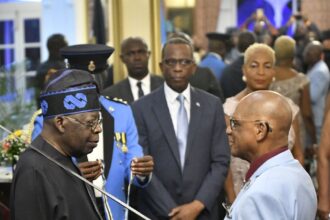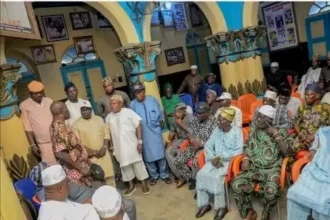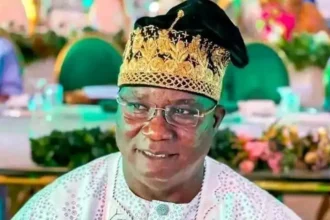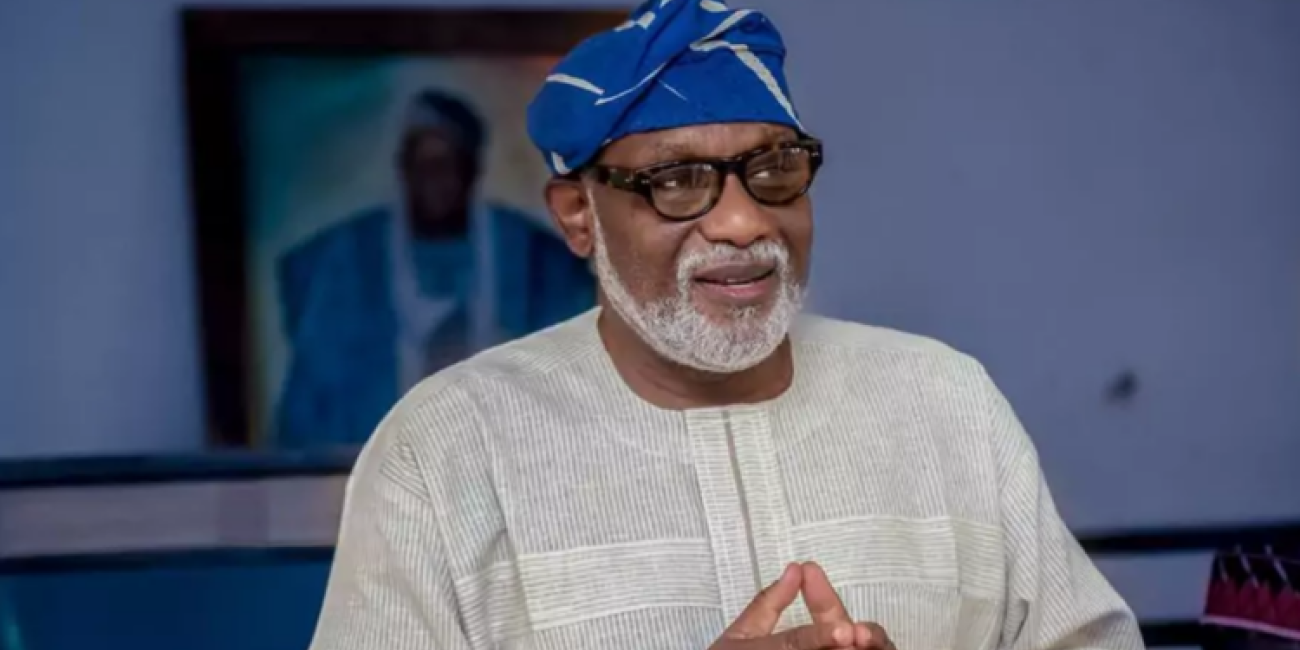...To get all news updates, Join our WhatsApp Group (Click Here)
Also Join our WhatsApp Channel (Click Here)
Infertility has become a major problem in Nigeria, prompting victims to look for solutions in every area possible.
For this reason, medical investors have taken advantage of this, creating an industry, with clients willing to pay huge fees to get the right services to solve their infertility issues.
There are now a number of clinics offering fertility services in the country and with the rate at which infertility is becoming a major issue, the industry is booming every day.
A major service that these fertility clinics offer is the sale of matured female eggs to their clients, which is gotten through a voluntary donation by females in exchange for a certain amount of money.
Egg donation is designed to help families who are having trouble conceiving. The process involves taking eggs from one woman, fertilizing the viable ones, and then transferring them either to the aspiring mother or to a surrogate, in the hope of achieving pregnancy.
In this article, we would be looking at how the industry works.
Meanwhile, experts like the American Society for Reproductive Medicine recommend that women should only donate their eggs six times in a lifetime.
How the industry works
The agency (National Health Act) regulating the donation of eggs does not criminalize it, but it criminalizes the exchange of the act for money.
This is where the black market for fertility egg donation comes in.
The Association of Fertility and Reproductive Health (AFRH), lists 23 registered private clinics in its directory, but several reports suggest there are more illegal fertility clinics in the country, with little or no regulation of these establishments.
According to reports, many young females in Nigeria embark on egg donations in order to make quick money.
Clinics generally pay between 80,000 naira and 150,000 naira per cycle of egg donation, depending on the location of the clinic.
The business is mostly introduced to young females through friends who have gone through the process of also donating their eggs. It becomes really lucrative, knowing that you are not just introducing a friend to the business, but also getting paid.
This makes the business boom as females are quick to introduce the business to their friends for some extra cash.
There are also fertility agencies that source these donors out for fertility hospitals, to make their jobs easier.
In this industry, at the end of the deal, it’s a win-win situation for all the parties involved.
The donors get money in exchange for their eggs, the clients get matured eggs for fertilization in exchange for their money and the fertility hospitals are paid a huge amount of money.
Screenings and tests
When a female donor shows interest in donating her eggs for sale, some necessary screenings and tests are carried out to put the mind of clients at rest.
The screening process and eligibility procedures vary from one clinic to another.
But major screening and tests involve blood samples being taken, then tests are done for genotype, HIV, and hepatitis, etc. Also, questions are asked about the donors’ health and medical history.
Thereafter, forms are given out to the donor to be signed for consent for the procedures, to show that every act is completely voluntary.
Confidentiality
The whole process is totally confidential, as the donor does not even get to know the end receivers of the eggs donated. The same rules apply to the clients as they are not made to come in contact with the donors.
After consultations and decisions are made, the fertility specialist asks clients if they have any individual which they would like to use their eggs. In the absence of none, the clinic matches the clients with a donor.
This is after a series of tests such as genotype, blood group, etc, has been done on the clients, to know what donor would fit in best. Sometimes, clients have preferred taste on what their donor should be or look like, aside from the medical aspects.
Sometimes, the tribe, complexion, height, and other physical conditions matter a lot to some clients.
The egg retrieval process
The process from the beginning of the hormone injections to egg retrieval takes approximately 13 to 15 days, depending on the donors’ body response to the stimulating hormones.
Once a donor makes up her mind on donating her eggs and the necessary tests and screening are carried out successfully, the next stage is to prepare the donors’ body for the production of multiple, healthy, and matured eggs.
Hormonal injections are given to the donor to help her ovaries produce extra eggs so that instead of the usual one egg per month, it produces multiple eggs for a successful implant into the client. This is because most times, the In vitro fertilization (IVF) process may not be successful at the initial trials.
When the eggs are matured for retrieval, the procedure is usually completed within 30 minutes with the patient under sedation. A needle is passed through the posterior vaginal wall into the ovaries under ultrasound guidance.
The mature follicles are then aspirated via the needle into test tubes. This process is repeated for the second ovary. The patient is given analgesics and antibiotics afterward and is put on bed rest to allow the sedation to wear off.
Little or no option
Nigeria’s unemployment rate of 33.3 percent in 2020, a number that is steadily rising plus its high inflation rate negatively affects the economic mobility of many citizens.
Against this odd, the promise of money is a big incentive for many young people to do things they would not ordinarily consider.
With the government-mandated minimum wage in Nigeria at 30,000 naira per month, and even the least well-paid egg donation paying more than double that per round, many are willing to accept the potential health risks.
Are there government regulations?
In 2014, the National Health Act was enacted. It is currently the only legal framework governing egg donation in Nigeria.
While it is true that the National Health Act does not criminalize egg donation, it criminalizes the exchange of human tissue and blood products for money.
A bill for the establishment of a Nigerian Assisted Reproduction Authority to regulate this practice was presented before the National Assembly and for the second time on May 2, 2012. It was referred to the Committees on Health and Justice but has not yet been passed into law, Aljazeera reports.
Section 51 of the Act states that removal of tissues from living persons must be done only, “In an authorized hospital, for that purpose and on the written authority of the medical practitioner in charge of clinical services in that hospital or any other medical practitioner authorized by him or her.”
While section 53 of the Act criminalizes the exchange of human tissue and blood products for money, even allowing for a fine or a year’s imprisonment for those convicted.
You can get every of our news as soon as they drop on WhatsApp ...To get all news updates, Join our WhatsApp Group (Click Here)
Also Join our WhatsApp Channel (Click Here)












